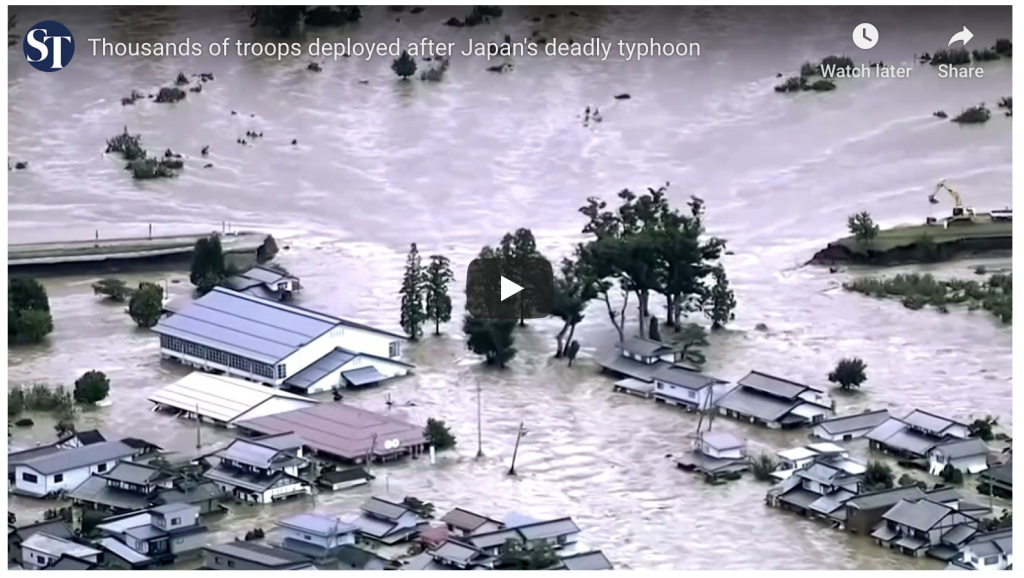Typhoon Hagibis Floods Japan, Breaks Historic Records
 Typhoon Hagibis devastated Japan this weekend with record flooding as shown in this photo series from the Singapore Straits Times.
Typhoon Hagibis devastated Japan this weekend with record flooding as shown in this photo series from the Singapore Straits Times.
The deluge arrived from all directions: as huge waves from the coasts, in the high elevations as torrential rain, flowing downhill as runoff. Rivers overflowed their banks, engulfing entire towns. Hundreds of homes were swept away as levees broke, causing death and destruction across a swath of communities.
Japan has centuries, even millennia, of experience with all manner of natural disasters including typhoons, earthquakes, and tsunamis. Yet they were not at all prepared for Typhoon Hagibis. (Typhoons are the Pacific equivalent of hurricanes – both are cyclones.)
Recalling the other recent record-breaking floods from Texas to England to India, there is a larger message here. Planning for the future must look far beyond our past experience of flooding. We are in a new era. Future floods will push the boundaries, likely setting — and resetting — new high water marks.
“Five Forms of Flooding” is a framework that I use to show how diverse flooding factors can all combine for surprising impact. They are: 1) coastal storms as the most iconic form. Stronger storms have been predicted as the oceans warm, now occuring routinely, as with Hagibis. It is the heat energy in the sea that fundamentally drives cyclones. 2) Record rainfall is occurring all over the world, just as predicted with warmer oceans, evaporating more. More moisture in the air must come down as heaviers rain — or snow. 3) Increased runoff, as rainfall volume accumulates as it moves down valleys, rivers, and even to lower streets. 4) Extreme tides, often called King Tides, are completely unrelated to weather, following a 19-year cycle, but make other coastal flooding worse. The 5th flood factor is sea level rise – though just getting started, the accelerating pace of rising seas due to melting land ice, will raise all coastal flooding this century to levels unseen in all human civilization.
Japan is a strong island nation with great knowledge and deep respect for the sea. Hopefully their sense of history, structure, and planning, will enable them to begin adapting for the new era of increased flooding. All coastal communities need to consider how to rise with storms, tides, and sea level rise.
